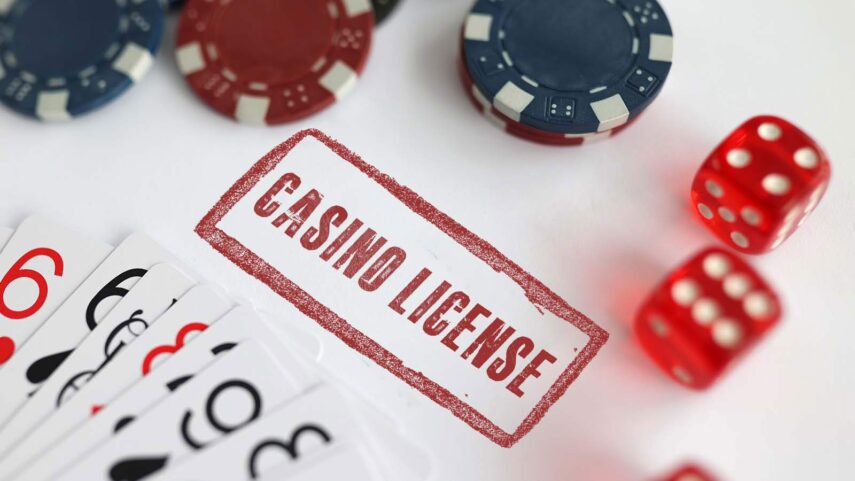Crypto gambling works like online gambling; the only difference is that you use cryptocurrencies to bet rather than fiat. Because of all the advantages of getting paid in Bitcoin, or any other cryptocurrency, for that matter, crypto gambling quickly became a go-to option for the majority of casino players.
Unfortunately, many players aren’t sure whether crypto gambling is legal in their country and tend to avoid it, despite its benefits over traditional online gambling.
To help you out, we’ve prepared a comprehensive guide that will tell you everything you need to know about the legality of online and crypto gambling in the US and how to avoid getting into trouble when gambling online.
The Legal Status of Crypto Gambling in the US
Online gambling has skyrocketed in popularity, especially when it comes to cryptocurrency gambling. Nowadays, crypto casinos are everywhere, and with the help of trustworthy sites like Casinos Blockchain that specialize in reviewing crypto gambling sites, you are just a few clicks away from finding a licensed and safe place where you can gamble.
However, did you know it is just as important to find a legal casino and that not every licensed casino is necessarily legal?
Before we get to that, let’s quickly explore whether online gambling is legal or not.
Is Online Gambling Legal in the USA?

The legality of online gambling has been a hot topic in the US for years now. New laws are introduced regularly, continuously changing the legal landscape of online gambling across the country.
Here’s what you need to know.
First things first, there is no federal law that explicitly prohibits online gambling.
In the US, online gambling is regulated by each state separately, so whether you can gamble online or not depends on where you are in the US. At the same time, it also changes whether you are playing in an online casino or if you are betting on sports.
For example, online casino gambling and online poker are legal in states like:
- New Jersey
- Connecticut
- Delaware
- Pennsylvania
- West Virginia
- Michigan
On the other hand, online sports betting is legal in 27 jurisdictions, while online horse racing betting is available in more than 30 states.
Due to limited options, a lot of players from the US turn to offshore casinos and sportsbooks. Is it legal? Not really. But it is also not illegal.
Namely, the US government is more interested in illegal casinos that operate within US borders rather than the players. At the same time, these laws aim to challenge businesses that aid players in illegal activities by processing payments to illegal casinos and sportsbooks, which is what the Unlawful Internet Gambling Enforcement Act is meant to address.
In other words, you are unlikely to get in legal trouble for using offshore sportsbooks and online casinos—to our knowledge, no single individual has been prosecuted for gambling online in an offshore casino or a sportsbook.
Casino Licenses

We mentioned legal and illegal casinos, so what exactly makes an online casino legal?
Well, simply put, a gambling license.
In order for an online casino to operate legally, it must have a valid license. A gambling license is issued by a gaming authority, such as the UK Gambling Commission, the Malta Gaming Authority, or the Curacao Gaming Control Board, for example.
These licenses confirm that the casino adheres to strict rules and regulations imposed by the governing body. In a way, a license protects players and serves as a testament that the online casino is credible, fair, and trustworthy.
So, is every licensed casino legal? Well, not necessarily.
A gambling license is not universal—certain jurisdictions and countries recognize only one or multiple licenses, but not necessarily all of them.
For example, take a look at Stake Casino and BC.Game, two of the most popular crypto casinos. Both casinos are licensed by Curacao.
The tricky part? The Curacao license is not recognized by the US.
To legally operate in New Jersey, for example, Stake or BC.Game would need to have a license issued by the Casino Control Commission, which is the governing body responsible for licensing New Jersey casinos and key casino employees.
Therefore, while both Stake and BC.Game are fully licensed, neither of these two can legally establish a casino within the US borders and is not allowed to accept players who come from the US.
The silver lining here is that you are unlikely to get into legal trouble by playing in a casino that does not accept players from your country.
However, the casino might, so rather than risking costly lawsuits, casinos often block traffic from regions where they are not allowed to operate in or simply ask players to self-exclude.
Can You Use a VPN for Crypto Gambling?

To circumvent casinos’ restrictions, some players use Virtual Private Networks or VPNs, which allow you to spoof your IP address and trick the casino geo-location software into thinking you are coming from, let’s say, Canada, where crypto gambling is legal.
Unfortunately, there are a few issues with that.
Namely, crypto casinos forbid players to use VPNs for malicious activities, and using a VPN to play from a country that’s on the casino’s restricted list goes directly against casino policy.
On the other hand, most online crypto casinos allow players to use VPNs as long as they are not breaking any rules. Since virtually every crypto casino out there places a high emphasis on players’ anonymity, it only makes sense that you are allowed to use another layer of security to protect your identity online.
KYC checks are another issue when trying to trick a casino by using a VPN. Namely, virtually every licensed casino uses KYC checks to prevent underage gambling, fraud, or money laundering, and casinos will generally use KYC checks when you first request a withdrawal, especially if it’s a big one.
Therefore, even if you trick the casino, register, make a deposit, and start playing, you won’t be able to withdraw any money until you verify your personal information, such as your name and residence, and faking those brings a whole new slew of legal trouble.
Final Thoughts
While the US is slow to legalize online gambling on a national level, several states have made significant improvements in the past few years, and online gambling legislation may prove successful in 2024.
Furthermore, with the massive loss in revenue from taxing brick-and-mortar gambling establishments caused by the pandemic, governments worldwide may look for a new source of revenue, and online gambling just might receive the necessary push in the right direction.
As things currently stand, online gambling is only legal in a few states. However, crypto gambling laws are mainly about the casinos and not the players, which is why most players from the US simply turn to offshore crypto casinos.
Regardless of where you play, an important thing to remember is that you only gamble at reputable and trustworthy casinos.
At the same time, make sure to bet responsibly and only play with the money you can afford to lose.
Related Posts:
- Gambling Regulation Levels Across Europe – An Examination
- Crypto Regulation Around the World [Investment Guide 2024]
- How Will Crypto Regulation Impact the Market in 2025?
- PKT Cash Crypto – 4 Basic Facts You Should Know…
- Why Online Gambling Is So Popular in the USA in 2024
- Everything you need to know about the conjuring…







